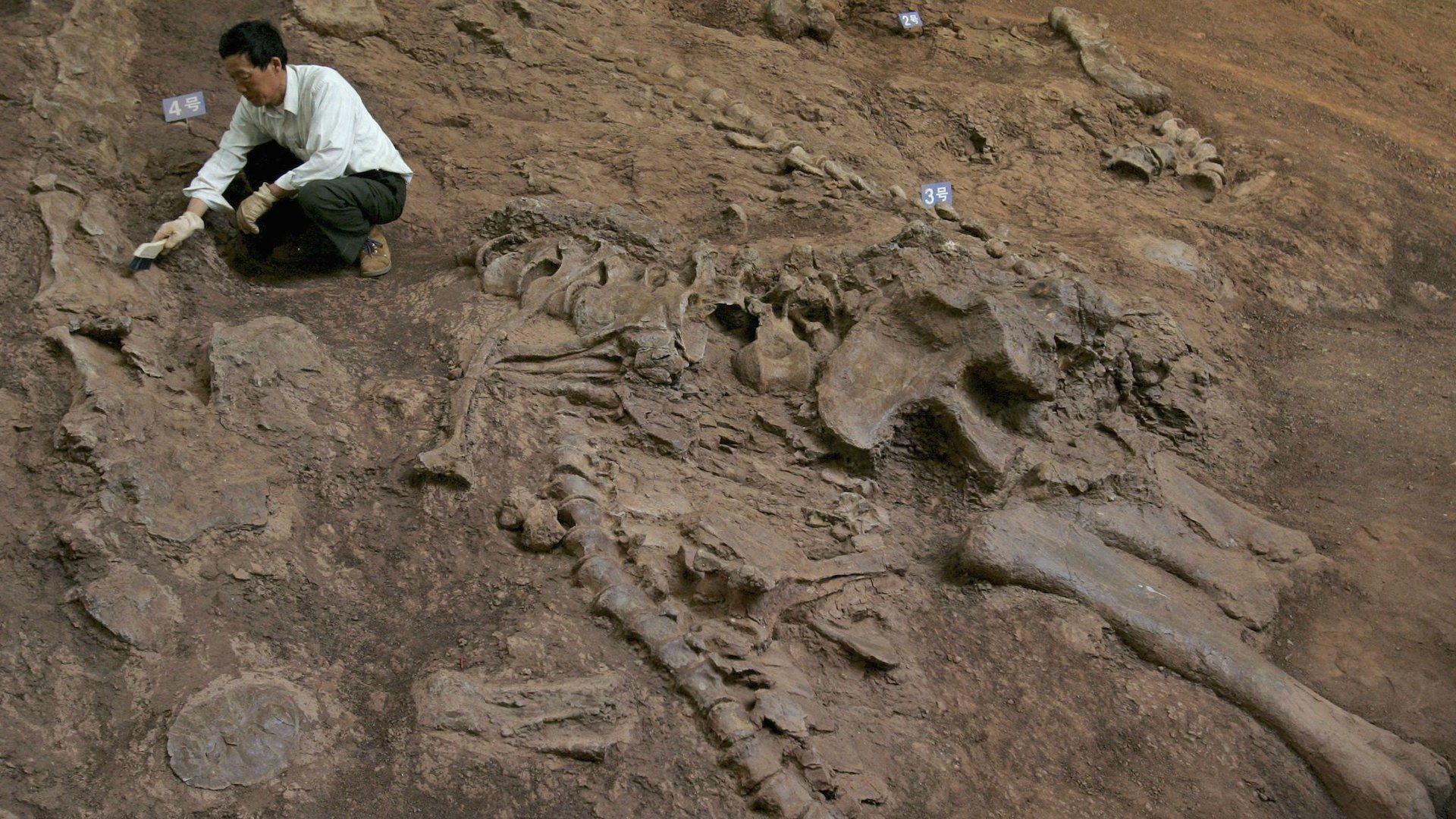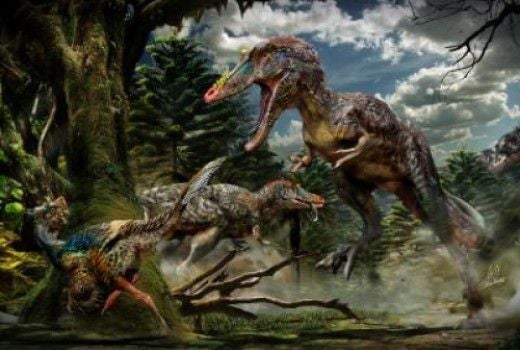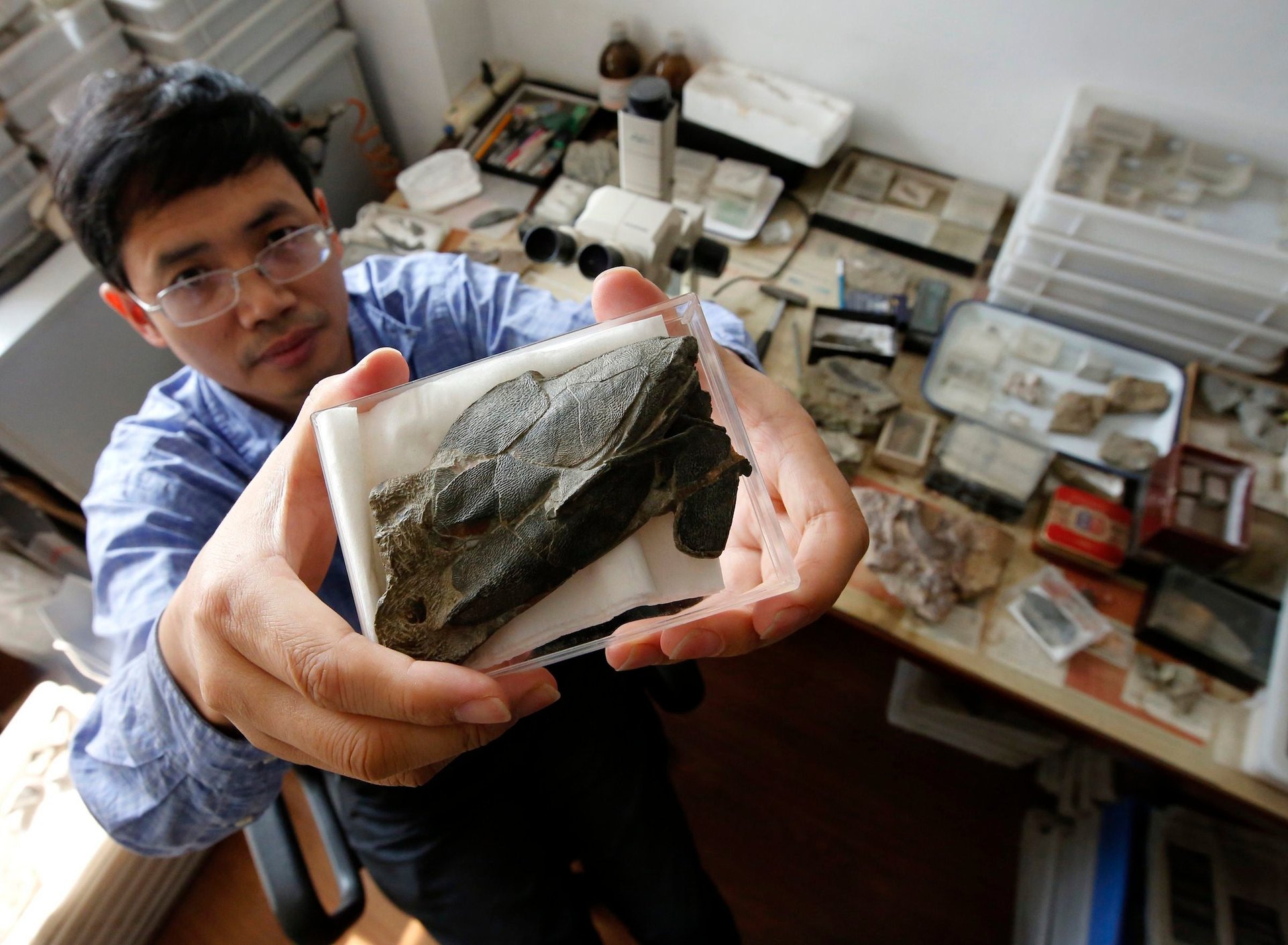In China, paleontology is going the way of the dinosaur
This week, Xue Yifan, a senior at Peking University (PKU), posted a photo on her Renren page that quickly went viral: She’s standing alone in front of a massive concrete library, in black rimmed glasses and her graduation hat and gown, looking solemnly into the camera. The caption for the photo reads: ”A group photo of paleontology majors, [enrollment] class of 2010.”


This week, Xue Yifan, a senior at Peking University (PKU), posted a photo on her Renren page that quickly went viral: She’s standing alone in front of a massive concrete library, in black rimmed glasses and her graduation hat and gown, looking solemnly into the camera. The caption for the photo reads: ”A group photo of paleontology majors, [enrollment] class of 2010.”

China, home to dozens of fossil sites, is one of the world’s most important regions for the study of paleontology, but scientists say the field is worryingly unpopular among the country’s youth who are opting for majors like engineering or business.
Xue is the sole graduating paleontology student from China’s best-ranked university. Since the paleontology department’s founding in 2008, the university has only had one graduate each year—though currently, there are two second-year paleontology students—”That counts as a new record,” one administrator said. Earlier, almost 1,000 students from PKU’s business department took their graduating photo in the same spot.
While America is home to more fossil sites, China has surpassed the US when it comes to discoveries of new ancient species, including a dinosaur related to the Tyrannosaurus rex (“Pinocchio Rex“) found earlier this year at a construction site in Ganzhou. Scientists have taken to calling a northern Chinese province, where volcanic ash entombed Chinese dinosaurs and birds, as well as early mammals over a hundred million years ago “a Mesozoic Pompeii.”

“It is puzzling that, at a time Chinese paleontology’s standing in world science is at an all-time high, students who choose paleontology is at an all-time low,” Wang Xiaoming, curator and chair of vertebrate paleontology at the Natural History Museum of Los Angeles, told Quartz. The situation is “one of many paradoxes in Chinese science,” he said.
During the early days of the People’s Republic, an army of geologists and paleontologists were trained to survey the country’s natural resources. According to Jianbo Liu, a member of the faculty of PKU’s school of earth sciences, at that time, thousands graduated with degrees in geosciences. That work ground to a halt during the Cultural Revolution of the late 1960s and 1970s and only began to recover in the 1980s.
But unlike then, students now choose their own majors and face higher tuition fees as well as uncertain job prospects. “Geology in general and paleontology in particular can be perceived to be esoteric sciences with a difficult job market,” a group of Chinese academics wrote in Paleontologia Electronica in 2010. “The most serious threat to the sustainable development of Chinese paleontology is the decline of undergraduate education programs at Chinese universities,” the scientists wrote.

A new generation of paleontologists is important for China if it does want to protect and preserve its rare fossil resources, which are under threat from poachers and counterfeiters. A commercial fossil trade inspires mass and often careless excavations by amateurs, who also take little care to collect common fossils that are still important, Wang says. Fossil forgeries are also rampant—it’s estimated that as much as 80% of fossils displayed in Chinese museums are fake.
Only a handful of schools, including Peking University, teach paleontology as a major for undergraduates, which means there are fewer and less qualified candidates for graduate level research institutes. On the news site Sina, paleontology ranked 128th out of about 598 academic majors that web users have tracked news about over the past year, behind “gardening” and “traffic engineering.”
As Xue’s photo continued to circulate across Chinese social media today, some admired her independent drive. (She completed her thesis on dragon fish and will be published in an academic journal soon, according to Chinese media.) But others wondered about the resources given to a major with such little demand. “This is really too wasteful,” one blogger said. Another asked if studying paleontology meant “researching Godzilla.”
And one recounted a friend’s response to his childhood dream of becoming a paleontologist, “Paleontology? What do you expect from squatting in the wild and digging all day long? Get some dinosaur bones and use them to make soup?”
Cathy Sizhao Yi contributed additional reporting.